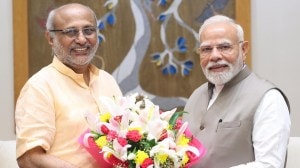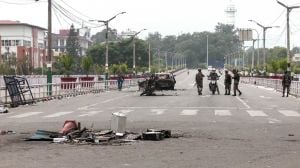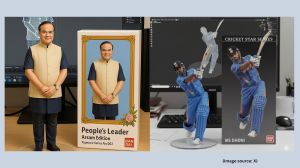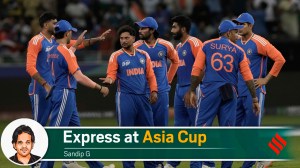Football scores a goal
It is arguably the most valued acknowledgement in the world. The Nobel Prize for Peace has gone to outstanding public figures like Mother ...

It is arguably the most valued acknowledgement in the world. The Nobel Prize for Peace has gone to outstanding public figures like Mother Teresa and Dag Hammarskjold — although it’s still a mystery why a certain Mohandas Karamchand Gandhi should have been left out of the reckoning — and organisations with a singular commitment to human welfare like the International Physicians for the Prevention of Nuclear War. By choosing football as his nomination for this year’s Prize, the Swedish lawmaker Lars Gustafsson has therefore displayed a taste for the quirky that is not generally characteristic of the Swedes. It’s not even certain his choice will pass muster, since the Nobel Peace Prize can only be awarded to a person or an organisation, football being neither.
However, since this is a serious attempt to honour a game that gets at least a quarter of the world into a catatonic frenzy, it should not be dismissed out of hand. Gustafsson maintains that football has helped international relations. Anyone who has witnessed the British football fan in his natural habitat — the football stadium — may wonder if Gustafsson is speaking about the same game. This after all is a sport that, according to some accounts, traces its hoary origins to blood crazed gangs kicking decapitated heads around town squares. Certainly, Britain’s king, Edward II, did not regard the activity with any degree of equanimity and issued an edict that observed, among other things, his disquiet over “the great noise in the city caused by hustling over large ball, from which many evils may arise”. More recently, the game nearly provoked El Salvador and Honduras into war. It has also had to contend with the odium of being tainted by drug money, as the merciless mowing down of Colombian footballerAndreas Escobar after he scored a self-goal in a match against the USA in the 1994 World Cup, demonstrated. Despite FIFA having blown the whistle on numerous malpractices and cleaned up the game considerably — the ban on former Liverpool goalkeeper Bruce Grobbelaar for match fixing being a case in point — there is still a great deal that is just not football. So whether it can be chosen as an exemplar of idealism, which the late Alfred Bernard Nobel enjoined as an important requisite for selecting winners of the Prize is an open question.
But then again, as George Orwell put it with such perspicacity, “serious sport has nothing to do with fair play. It is bound up with hatred, jealousy, boastfulness, disregard of all rules and sadistic pleasure in witnessing violence. In other words, it is war minus the shooting”. To expect football to remain immured to this great clash of bodies and egos would be unreasonable. But the very fact that World Cup Football can be organised every four years with some 64 matches being played over 33 days between nations representing all the continents of the world, without hell breaking loose and world wars being declared, indicates the potential of football to bring diverse peoples together in heart-stopping action. Perhaps Lars Gustafsson does have a point, after all. And even if he is football mad, it is a divine madness.
Photos



- 01
- 02
- 03
- 04
- 05



























